There is a test String:
Module([Assign([Name('a', Store())], Num(2)), Assign([Name('b', Store())], Num(3)), Assign([Name('c', Store())], Str('Hello')), Assign([Name('x', Store())], BinOp(Name('a', Load()), Add(), Name('b', Load()))), Assign([Name('x', Store())], Name('a', Load())), Expr(Call(Name('print', Load()), [Name('a', Load())], [], None, None)), For(Name('i', Store()), Call(Name('range', Load()), [Num(10)], [], None, None), [Expr(Call(Name('print', Load()), [Name('a', Load())], [], None, None))], [])])
I am trying to get all loaded variable names from it. My regexp is
[a-z]+(?=', Load)
Result of it is the following:
 As you can see it also finds built-in modules such as print, range. How to exclude them? Values to be excluded are preceded by
As you can see it also finds built-in modules such as print, range. How to exclude them? Values to be excluded are preceded by
Call(Name('
I tried
(?=Call\(Name\(')[a-z]+(?=', Load)
but it did not work out.
My code is:
import re
test = '''Module([Assign([Name('a', Store())], Num(2)), Assign([Name('b', Store())], Num(3)), Assign([Name('c', Store())], Str('Hello')), Assign([Name('x', Store())], BinOp(Name('a', Load()), Add(), Name('b', Load()))), Assign([Name('x', Store())], Name('a', Load())), Expr(Call(Name('print', Load()), [Name('a', Load())], [], None, None)), For(Name('i', Store()), Call(Name('range', Load()), [Num(10)], [], None, None), [Expr(Call(Name('print', Load()), [Name('a', Load())], [], None, None))], [])])'''
print(re.findall(r"[a-z]+(?=', Load)", test))
print(re.findall(r"(?=Call\(Name\(')[a-z]+(?=', Load) ", test))